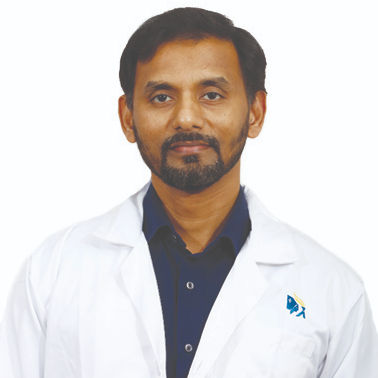Family History Of Heart Disease: Risks Factors And Prevention
Learn how family history impacts heart disease risk and discover proactive steps like screenings, lifestyle changes, and medical care to protect your heart and improve overall health.

Written by Dr Shreya Sarkar
Last updated on 3rd Jul, 2025
Cardiovascular diseases, also known as heart diseases, remain one of the most prevalent diseases globally. Broadly, the term indicates a set of diseases affecting the cardiovascular system. Ranging from coronary artery diseases to heart failure and arrhythmias, these problems may interfere with the heart’s normal working and therefore have complications that can be fatal. The nature and modifiable risk factors are essential aspects in the prevention and treatment of heart diseases.
When it comes to heart health, family history is one of the biggest considerations. This is especially important if you have relatives with a history of heart disease—this increases your chances as well. This link is attributed to both hereditary and socio‐behavioral factors. When such risks are identified, individuals can proactively act upon potential symptoms to ensure that the heart is not endangered in the future.
Genetic Factors in Heart Disease
Genetics is known to be the foundation and baseline for many aspects of our being, including our health. Heart diseases are no exception. While environmental and lifestyle factors can trigger certain events or increase the probability of risk, genetic influences are generally seen to influence how susceptible one is to developing heart conditions.
The reasons for this lie in the fact that key processes like blood pressure control, cholesterol regulation, and more, vary with respect to genetic variations. As an example, mutations in the LDLR gene have been seen to be causally related to familial hypercholesterolemia, a condition leading to dangerously high cholesterol levels from a young age.
Considering this link, certain heart conditions are directly linked to genetic inheritance.
- Familial Hypercholesterolemia: Causes elevated cholesterol levels and early-onset heart attacks.
- Hypertrophic Cardiomyopathy (HCM): Thickening of the heart muscle, which can lead to arrhythmias or sudden cardiac arrest.
- Long QT Syndrome: A disorder affecting the heart’s electrical activity, potentially causing irregular rhythms.
Assessing Risk When Heart Disease Runs in the Family
When it comes to assessing one’s risk of heart disease, family health is a reasonable metric to begin with.
Certain patterns in family history signal heightened risk, including:
- Early-onset heart disease (before 55 in men and 65 in women) in immediate family members.
- Clusters of high cholesterol, diabetes, or hypertension within the family.
- Relatives diagnosed with sudden cardiac conditions or congenital heart defects.
Further, healthcare professionals use instruments like the Framingham Risk Score and ASCVD Risk Calculator to estimate a person’s 10-year or lifetime cardiovascular risk. These calculators make calculations based on variables such as age, blood pressure, cholesterol levels, smoking status and family history.
Consult Doctors To Access Risk of Heart Disease
Lifestyle and Environmental Influences
While genetics increase the vulnerability to heart diseases, lifestyle and environmental factors often determine the onset and growth of these conditions.
Behaviours such as smoking, excessive alcohol consumption and inactivity are significant contributors to cardiovascular issues. A diet high in saturated fats, trans fats, and sodium can worsen cholesterol and blood pressure levels, increasing the risk of atherosclerosis.
Adopting a heart-healthy lifestyle can substantially lower the risk of heart disease, even for those with a strong genetic predisposition. Key measures include:
- Balanced Diet: Prioritising fruits, vegetables, whole grains, lean proteins, and healthy fats.
- Regular Physical Activity: Engaging in moderate aerobic exercise, such as brisk walking or swimming, for at least 150 minutes weekly.
- Avoiding Tobacco: Smoking cessation significantly reduces cardiovascular risks.
Screening and Monitoring
For those with a family history of heart disease, regular screenings are vital to detect potential issues early. Proactive monitoring enables timely interventions, preventing minor health concerns from developing into major complications.
Key tests for high-risk individuals include:
- Lipid Profiles: To evaluate cholesterol levels.
- Blood Pressure Checks: For early identification of hypertension.
- Blood Glucose Tests: To monitor diabetes, a major cardiovascular risk factor.
- Coronary Calcium Scan: An advanced imaging test to measure arterial plaque buildup.
Consistent check-ups ensure that changes in cardiovascular health are tracked over time. This allows healthcare providers to refine treatment plans and implement preventive measures as needed.
Get Checked for Hereditary Heart Disease
Preventive Strategies
Preventing heart disease involves a combination of dietary changes, physical activity, and stress management. These measures not only reduce risk but also improve overall well-being.
A heart-healthy diet focuses on nutrient-rich foods while minimising processed items. Key principles include:
- Emphasising fruits, vegetables, whole grains and healthy fats like nuts and fish.
- Reducing intake of saturated fats, trans fats, and sodium.
Regular exercise strengthens the heart and improves circulation. Try participating in at least 30 minutes of moderate physical activity. This can include walking or cycling most days of the week. Resistance training also supports cardiovascular health.
Further, chronic stress contributes to high blood pressure and inflammation. Techniques like mindfulness, meditation and yoga help alleviate stress, promoting better heart health.
Implementing these preventive strategies ensures a comprehensive approach to managing cardiovascular risk.
Treatment and Management Options
Common medical treatments include angioplasty and stent placement to open blocked arteries, bypass surgery (CABG) to create new blood flow pathways and implantable devices like pacemakers for rhythm regulation. Valve repair or replacement is also performed for damaged heart valves. These interventions restore heart function and improve quality of life.
It is important to keep in mind that medications control symptoms, prevent complications and slow disease progression. Key medication examples include:
- Statins: Lower cholesterol and reduce plaque buildup.
- Beta-Blockers: Lower heart rate and blood pressure.
- Antiplatelets: Prevent blood clots and reduce heart attack risks.
- ACE Inhibitors and ARBs: Relax blood vessels and improve blood flow.
These are often prescribed in combination and monitored for effectiveness.
Besides this, cardiac rehabilitation is also a management strategy for providing an organised plan of recovery in addition to supervised aerobic exercises, dietary counselling, and techniques of stress reduction.
The Psychological Impact of Family History
The knowledge of a family history of heart disease can cause feelings of uncertainty and restlessness. Individuals may experience heightened stress or feelings of inevitability.
As a result, it is of utmost importance that these fears be addressed for a more holistic well-being. Seeking professional counselling, practising mindfulness and joining support groups could be a few ways to nurture these emotions.
Further, training and educational resources aimed at educating the entire family are invaluable. Educational programs, family counselling and online forums provide extremely relevant tools for navigating the challenges of hereditary heart disease. This also leads to the building of a strong support system within the family, resulting in proactive health behaviours.
Emerging Research and Innovations
Contemporary discoveries in genetics as well as the constant development of new technologies in the sphere of medicine change the perspective of the nature and means of therapy of heart diseases.
Advances in biochemical screening currently make it possible to detect particular genes that are linked to congenital heart diseases. This leads to individualised preventive and treatment interventions. A few studies have examined the potential of HR-CTs for enhancing the clinical applicability of basic and translational research findings.
New technologies and approaches including gene therapy, diagnostics supplemented with artificial intelligence and wearable health devices are the future of care. These have the advantage of early identification, live tracking, as well as specific therapies.
Conclusion
A family history of heart disease highlights the need for heightened vigilance and proactive care. By combining regular screenings, healthy lifestyle choices and the latest medical advancements, individuals can effectively reduce their risk.
The journey toward heart health requires awareness, commitment, and collaboration with healthcare providers—but the rewards are a longer, healthier life. Schedule a consultation with your healthcare provider today to assess your family history and develop a personalized plan for a healthier future.
Our Top Cardiologist
Consult Doctors To Access Risk of Heart Disease

Dr. Vignesh Thanikgaivasan
Cardiologist
11 Years • MBBS, MD (Gen Med), DM (Cardiology) AFAPSIC, FIMSA, FSCAI
Chennai
Apollo Hospitals Greams Road, Chennai
(75+ Patients)
Dr. Diganta Buragohain
Cardiologist
1 Years • "DM (Cardiology) in 2025 from NEIGRIHMS, Shillong MD (General Medicine) in 2020 Gauhati Medical College, MBBS in 2015 from Gauhati Medical College,"
Guwahati
Apollo Excelcare Hospital, Guwahati

Dr. Tarun Bansal
Cardiologist
8 Years • MBBS, MD(Med.), DM(Cardio)
Lucknow
Apollomedics Super Speciality Hospital, Lucknow
(100+ Patients)

Dr. Rajeshwari Nayak
Cardiologist
24 Years • MBBS, DNB (Med), DNB (Cardio), Fellowship Heart failure(Australia), Fellowship ECHO(Australia), FRCP(Glasgow), FACC, FESC, FCSI, Adj. Prof AHERF
Chennai
Apollo Hospitals Greams Road, Chennai
(150+ Patients)

Dr. Refai Showkathali
Cardiologist
24 Years • MBBS, MRCP, FRCP, CCT (Cardiology), FACC, FESC, Fellow (TAVI)
Chennai
Apollo Hospitals Greams Road, Chennai
(150+ Patients)
Get Checked for Hereditary Heart Disease
₹800(₹2000)60% off
Our Top Cardiologist

Dr. Vignesh Thanikgaivasan
Cardiologist
11 Years • MBBS, MD (Gen Med), DM (Cardiology) AFAPSIC, FIMSA, FSCAI
Chennai
Apollo Hospitals Greams Road, Chennai
(75+ Patients)
Dr. Diganta Buragohain
Cardiologist
1 Years • "DM (Cardiology) in 2025 from NEIGRIHMS, Shillong MD (General Medicine) in 2020 Gauhati Medical College, MBBS in 2015 from Gauhati Medical College,"
Guwahati
Apollo Excelcare Hospital, Guwahati

Dr. Tarun Bansal
Cardiologist
8 Years • MBBS, MD(Med.), DM(Cardio)
Lucknow
Apollomedics Super Speciality Hospital, Lucknow
(100+ Patients)

Dr. Rajeshwari Nayak
Cardiologist
24 Years • MBBS, DNB (Med), DNB (Cardio), Fellowship Heart failure(Australia), Fellowship ECHO(Australia), FRCP(Glasgow), FACC, FESC, FCSI, Adj. Prof AHERF
Chennai
Apollo Hospitals Greams Road, Chennai
(150+ Patients)

Dr. Refai Showkathali
Cardiologist
24 Years • MBBS, MRCP, FRCP, CCT (Cardiology), FACC, FESC, Fellow (TAVI)
Chennai
Apollo Hospitals Greams Road, Chennai
(150+ Patients)


